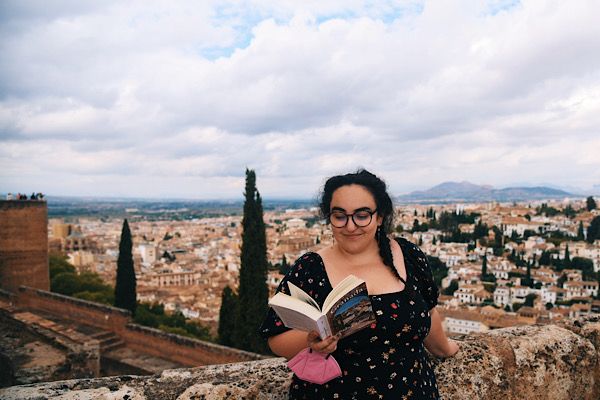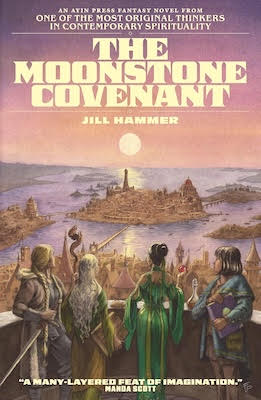In 1492, Granada fell. The Castillian Spanish, led by Isabella and Ferdinand, completed their conquest of al-Andalus, a rich, prosperous Muslim kingdom with centuries of history and culture. In exchange for surrender, the Spanish promised that the people of the city could maintain their beliefs and way of life. But it wasn’t long until they betrayed that promise.
 Granada: The Complete Trilogy by Radwa Ashour, translated by Kay HeikkinenThat’s the story that Egyptian author Radwa Ashour set out to write. In this landmark trilogy originally written in Arabic and now translated in full for the first time by Kay Heikkinen, Ashour writes of three generations of a Muslim family trying to survive the aftermath of their city’s conquest. I read the first book of the trilogy, Granada, in the city itself. I read of Jaafar and his smart, stubborn daughter Salima, of his adopted apprentices Naeem and Saad, under the pomegranate trees of the magnificent palace complex, the Alhambra, and in cafés tucked into the winding streets of the Albaycín. It was a superb resource of historical fiction. “The Spanish closed bathhouses because they thought they were unsanitary,” I told my mom. “Wait, I recognize this square! This is where the Inquisition executed prisoners,” I whispered under my breath to my sister. Thanks to Ashour’s dramatic, creative writing of history, Granada’s background bloomed before my eyes. And so it’s a great historical fiction read—and anyone who loves a multigenerational novel will love this one. But it’s also extremely relevant and resonant right now. Ashour tells the story of a family trying to maintain their way of life even as the unrelenting force of the Inquisition takes more and more away. The Spanish are determined to disempower, dispossess, and ultimately erase, if possible, the Muslims who nurtured the land and built the cities they now settle into. It was hard not to think of the past century’s work in dispossessing and destroying the Palestinian people. But even as the characters are forced to grieve and struggle, they persist. They continue to find pockets of belief and places to celebrate joy, they find ways to survive against the odds. Ashour’s trilogy (which clocks in at 486 total pages) is a must-read for fans of historical fiction, multigenerational tales, and stories of displacement and survival. |
 Photo by Leah Rachel von Essen Photo by Leah Rachel von Essen |
If you found this post online and want reading recommendations in your inbox, sign up for Read This Book here












 Bengali (Bangladesh) ·
Bengali (Bangladesh) ·  English (United States) ·
English (United States) ·